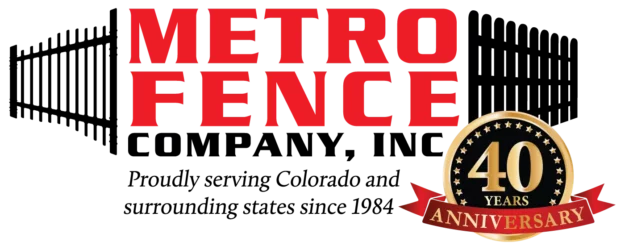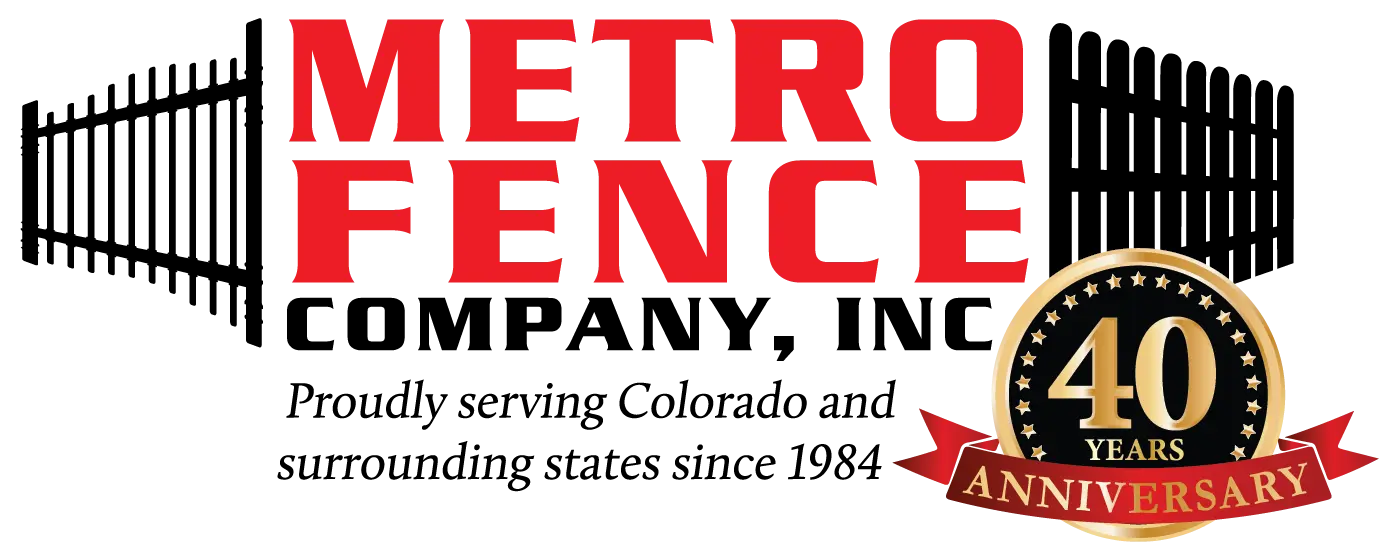Frequently Asked Questions
A. YES! An A+ rating with NO COMPLAINTS! We STRONGLY encourage you to check a company’s BBB report for rating and number of complaints filed. “Your dissatisfaction with their workmanship could very well be their next complaint”.
A. Yes, we offer free estimates. Click here for an instant estimate or call our offices at (303) 465.4405
A. Yes. We are happy to provide proof of insurance and we are licensed, where required, in most all of the Denver Metro cities. If we are not licensed in your particular city we will obtain the necessary licenses before we begin your project.
A. Yes. We offer a one-year workmanship warranty on our installations. Additionally, many of the products we install also carry a manufacturer warranty.
A. Typically, yes. Our experienced and skilled project managers and installers have built thousands of feet of custom fence. We would be happy to explore your plans and ideas with you.
A. Costs depend on a number of factors including: fence style, total footage, number of gates, materials needed, difficulty of installation, etc. We can help you find a fence to fit your budget and work up actual costs.
A. Think of the purpose of the gate and how you would use it. This will help determine the size of the opening and the type needed. Here are the primary considerations: · Placement – what is the most convenient access for most of your traffic? Are there obstructions in the gate area that would affect the opening? How do you need your gate to swing? · Size – a typical 4’ wide single gate is appropriate for walk-through, access for a push mower and even small riding lawnmowers, bikes, etc. A typical 10’ wide double gate is appropriate for vehicles and small trailers. Gates of other sizes can usually be built if the lengths are not impractical or structurally unsound. · Aesthetics –gates are often the focal point of a fence line and a custom style gate can add decorative “curb appeal”.
A. We accept cash, checks, and all major credit cards.
A. The primary advantages of buying from METRO FENCE CO. include: expert service and assistance from fencing specialists, the best products certified for fencing as well as hard-to find items, and competitive pricing.
A. Most cities and HOAs have fencing guidelines that define fence height allowances as well as other requirements and restrictions.
A. It is always best to discuss your plans with your neighbors for a fence on a shared property line prior to installation. When we are installing a fence for a customer, we typically work from a single contract and our customer collects from their neighbor(s). If preferred, we can establish separate contracts with participating neighbors and begin work once down payments are collected from each participant. There may be small administrative fees for this option.
A. Property pins determine your property lines. If these are not visible you can consult your plot plan, or possibly consult with your neighbor. Sometimes a property line can be determined by measuring off a curb or other landmark for which you (and your neighbors, if applicable) have information. We can sometimes help you in locating your property lines if we are installing the fence, but cannot officially confirm them. If there are any questions, we recommend hiring a surveyor.
A. Determining the best fencing options depends on a number of considerations. For instance:
What is the purpose of your fence? Do you need full privacy or simple containment? What level of security, maintenance, or cost fit your situation? What aesthetic elements need to be considered? Ultimately, our fencing experts can help you navigate this decision process and suggest the options that fit your needs.
Q? How long will my fence last?
A. Longevity of a fence depends on the type of material selected, proper installation, care and maintenance, and in some cases environmental factors including sun, water, and wind exposure. Assuming normal environmental conditions and sufficient care & maintenance, typical longevity in a standard six foot cedar fence with 4×4 cedar post is 20 to 25 years. You can increase the longevity of your fence dramatically by using steel post designed for wood fences.
A. Cedar lumber is naturally weather, rot, and insect resistant. Natural and treated whitewoods (pine, spruce, and fir) are not likely to weather as well as cedar. As noted on the American Fence Association Product Guide: “Cedar is not only aesthetically appealing but a practical choice, as it’s durable and can be reasonably priced. It’s a popular choice in areas that are fire-prone as it meets and exceeds safety classifications in the majority of areas across the United States. While many people choose to enjoy the beauty from a natural, untreated cedar fence, others choose to treat their cedar fences. As it is porous, it naturally takes to stains and paints, making initial painting and further maintenance a breeze.”
A. Cedar, and Ameristar Iron fence posts are based on 8’ maximum sections with the exception of Split Rail fences which are based on 10’ sections.
A. It is best to avoid vinyl and cedar fence designs with smaller posts (4×4).However cedar fence styles using the larger 6×6 posts, or Post Master Steel Post, and Ameristar Iron fencing do very well against heavy winds.
A. We offer 2 and 3 rail cedar split rail. We also offer rail fencing built from dimensional cedar lumber, 2×6 rails, 2×8 rails, 4×6 post, 6×6 post etc. including custom designs.
A. Typically, no. Our experience has shown that treated lumber is much more likely to turn, twist, bend and bow than cedar. We have also found that the natural properties of cedar outlast treated posts and rails.
A. Black streaking on cedar lumber is a reaction between metal fasteners and the natural wood properties that also make the wood resistant to weather, rot, and insects. The chance of streaking is significantly reduced by using the correct type of galvanized, aluminum, or specially coated fasteners, which we can provide. If black streaks are already present, they can be removed with oxalic acid.
A. Yes. This is a natural process from a natural building product, and it adds rustic character to the fence. Lumber grade and quality, installation methods, as well as care and maintenance will affect the amount of warping and splitting that occurs.
Q? How deep do you set the posts? Do you set them in concrete?
A. Post depth depends on the fence style and height. However, most fence posts are set at a depth of 24”. All posts are set in concrete.
A. The diameter for post holes is approximately two times the width of the post.
A. Homeowners often find working with brackets easier for installation of rails. However, an experienced fence installation company like METRO FENCE CO, typically attaches the rails by 3” screw shank galvanized nails with a pneumatic gun because the process is far more efficient. If installed properly, both methods offer an equally strong connection.
A. Depending on the steepness of the slope, longer posts may be needed to ensure proper height. Additionally, spacing between posts will be shorter than sections on flat ground both because the angle reduces horizontal distance and to improve the strength of the fence line. Because of increased labor and material usage, building on a hillside typically carries a higher cost than building on flat ground.
A. While there are a number of methods for attaching wood fencing and Ameristar iron fencing to a wall or concrete pad, solid wood posts are handled differently. Unlike decks where brackets are load-bearing and the tops of posts are secured to a structure, using brackets is not a correct practice for fencing because they will not support pressures from wind or ground cover. Installing wood fencing over a concrete pad or retaining wall requires cutting a hole through the concrete to secure them either in the concrete or the ground below depending on the depth of the concrete. The best practice, if it is possible, is to set wood posts to the outside of the concrete to allow them to be installed in the ground or use Post Master Steel Post and flange anchored in the concrete. Your consultant will evaluate and recommend a specific installation method for your situation.
A. We serve the Denver Metro area.
A. Yes, weather permitting.
A. We recommend that rough grade be established prior to fence installation, and if possible, we also recommend installing sprinklers, lawn, and other landscaping after the fence is installed.
A. This depends on the current status of your property. Some preparations may include: clearing the fence line area, discussing plans with neighbors, locating property lines, establishing rough grade, and locating sprinklers.
A. There are a number of variables involved, including the total length of fence, number of gates, and technical challenges of your project. However, our average fence installation is started and completed within a business week or less. Once we start a project we will continue our work until it is completed.
A: Typically we do not do fence repairs. When a wood fence needs repair, it is often in need of a full replacement. We can replace smaller sections at a time, but do not recommend repairs.













